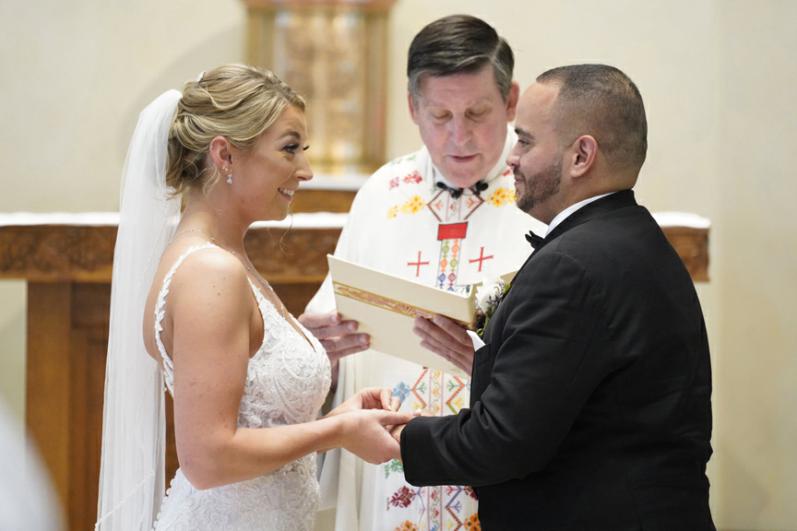Preparing for marriage
These are not the best of times for Catholic marriage in America. Numbers illustrate the point. According to the Center for Applied Research in the Apostolate, in 2020 -- when U.S. Catholic population stood at 73 million -- Catholic marriages numbered a measly 97,200.
But, you say, 2020 was the Year of COVID, the Year of the Great Shutdown. You could hardly expect a lot of church weddings then.
Fair enough. So let's look at a more typical year. In 2014, according to CARA, the number of Catholic marriages was 148,134. But before complacency sets in, bear in mind that in 1969 (Catholic population 54 million), the Catholic marriage total was 426,309. That's a decline of 278,175 Catholic marriages in 45 years.
As I said, not the best of times.
Numbers like these provide background for the Vatican's new plan for a "catechumenate" for couples preparing for marriage. It calls for formation starting a year and a half before the wedding and continuing into the early years. Such programs already exist in some U.S. dioceses and may be expected to grow in number with Vatican encouragement.
On a quick scan, the catechumenate approach, roughly modeled on the RCIA program for adults preparing to enter the Church, seems likely to appeal to highly motivated couples who, because of work or school or military service or some other reason, aren't planning to marry right now anyway. As an ideal, it's great. But the audience may be limited.
And here perhaps something else comes into play. A man I know whose wife recently died only a few weeks short of their 64th anniversary put his finger on it when I asked him what he thought was the key to a successful marriage -- and preventive medicine to head off marital breakup. Here's what he said:
"When we were married, I was 23 and my wife was a year younger. My intellectual scope was universal -- I knew nothing about everything -- and I had no idea I was entering a remedial program that would last nearly 64 years.
"The most important thing I learned -- and it took me years -- was that I should quit trying to make my wife over just the way I wanted her to be and accept her as she was. I suspect she would have said same thing the other way around about herself and me.
"I'm not talking about big faults. I mean the small peculiarities of attitude and behavior that we all have--liking this kind of music instead of that, preferring to vacation here rather than there, stuff like that. Learning to negotiate these differences with the person you marry is the heart and soul of complementarity.
"But it also was essential that we got married absolutely convinced that the marriage bond is unbreakable. Every marriage has rough spots and approaching them knowing you have no choice except to work things out is a great motivator for getting on with the job. Whereas people who enter marriage thinking, 'If this doesn't pan out, I'll quit,' have two strikes against them from the start.
"I don't fault theologians and canon lawyers who loosened up the annulment process some years back. It may have been a good idea to recognize broader psychological grounds, especially with so many people apparently entering marriage even less prepared than my wife and I were. But when it comes to staying married, nothing beats the certainty that marriage is for keeps."
Here's hoping a marriage catechumenate will help more people think like that.
- Russell Shaw is the author of more than twenty books. He is a consultor of the Pontifical Council for Social Communications and served as communications director for the U.S. Bishops.



















